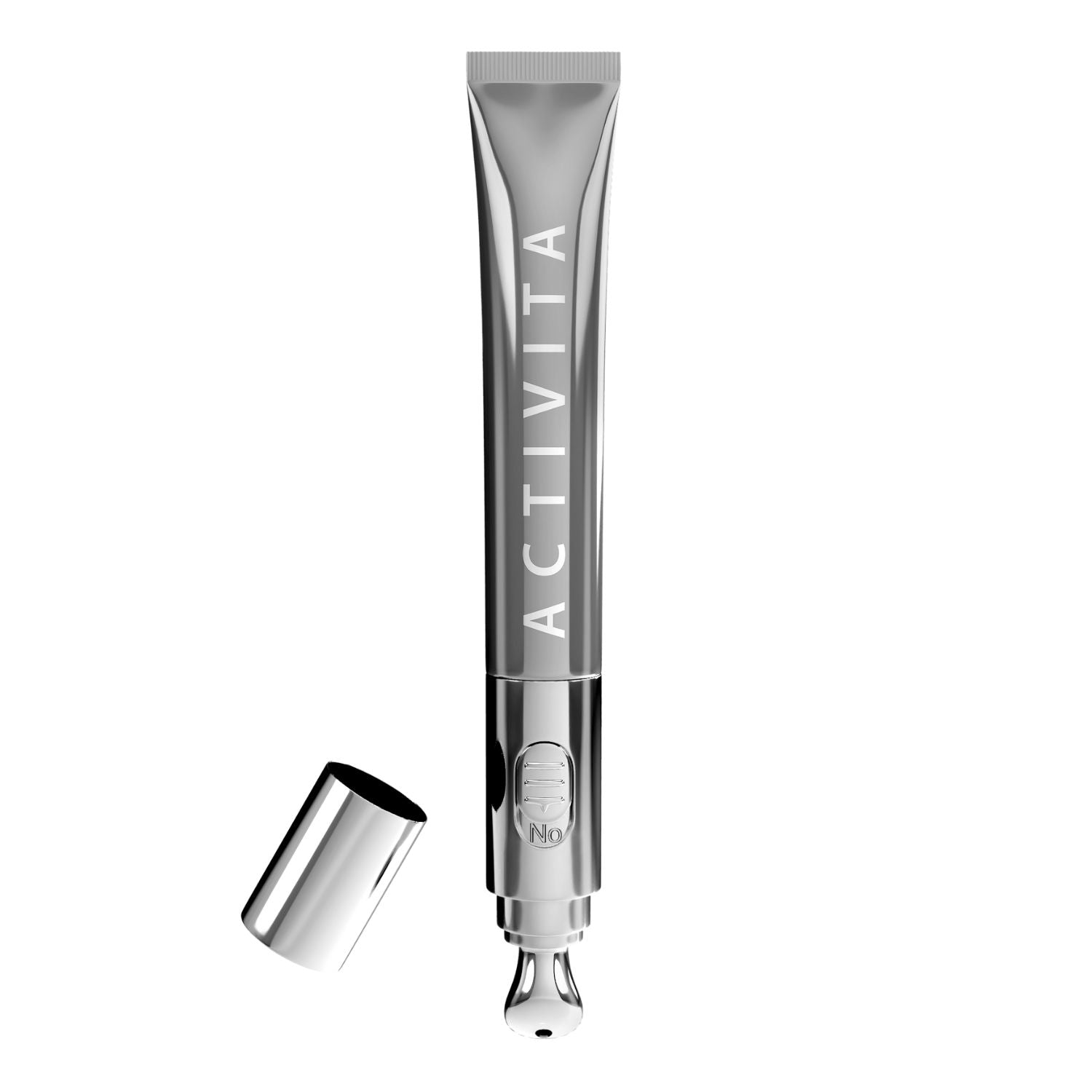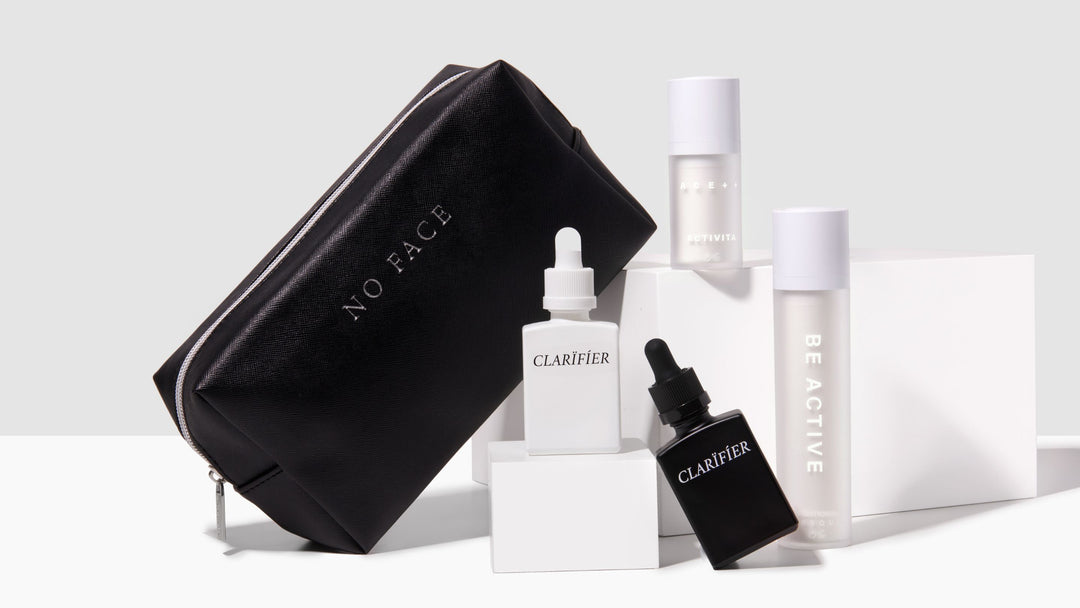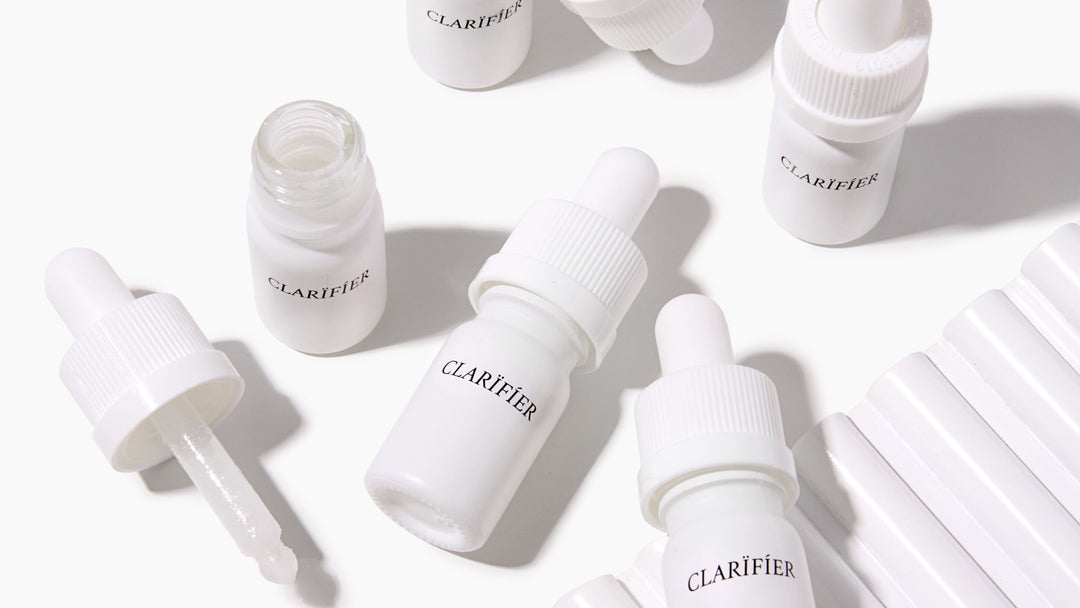Why Vitamin C in your Skincare Routine?
As a powerful antioxidant, vitamin C has gained significant attention, and for good reason. However, along with its popularity, misconceptions have emerged. In this blog post, we will unravel the truth about vitamin C, debunk common misconceptions, and also explore complementary ingredients that can enhance its effects. Get ready to discover the real magic of vitamin C and its synergistic allies for your skincare routine.
WHAT IS VITAMIN C AND HOW DOES IT WORK?
Vitamin C, also known as ascorbic acid, is a water-soluble nutrient that plays a vital role in various physiological processes in the body. When it comes to skincare, vitamin C is primarily lauded for its potent antioxidant properties. It neutralizes free radicals, which are unstable molecules that damage the skin cells and contribute to premature aging. Additionally, vitamin C stimulates collagen production, brightens the complexion, and helps protect the skin from harmful UV radiation.
SKINCARE BENEFITS OF VITAMIN C:
- Brightening and Evening Out Skin Tone: Vitamin C is a game-changer for individuals looking to achieve a more radiant and even skin tone. It inhibits melanin production, the pigment responsible for dark spots and hyperpigmentation, resulting in a brighter, more luminous complexion.
- Collagen Boosting and Anti-Aging Effects: Collagen is a protein that provides structural support to the skin. With age, collagen production declines, leading to fine lines, wrinkles, and sagging skin. Vitamin C stimulates collagen synthesis, promoting firmer, more youthful-looking skin.
- Sun Damage Protection: While vitamin C is not a substitute for sunscreen, it offers additional protection against sun damage. When used in conjunction with broad-spectrum sunscreen, vitamin C strengthens the skin's defense mechanisms, reducing the harmful effects of UV radiation and preventing photoaging.
- Antioxidant Shield: By neutralizing free radicals, vitamin C shields the skin from oxidative stress and environmental aggressors. This antioxidant protection helps minimize inflammation, redness, and damage caused by pollution, cigarette smoke, and other external factors.
BEST PRACTICES FOR USING VITAMIN C IN SKINCARE:
Choosing the Right Product:
When it comes to incorporating vitamin C into your skincare routine, it's essential to choose a high-quality product from a reputable brand. Opting for stable formulations ensures that you can fully reap the benefits of this powerful antioxidant. As you explore the vast array of vitamin C products available, keep in mind that a concentration between 10-20% is often recommended for optimal results.
With these considerations in mind, let's now shift our focus to a standout product that checks all the boxes: Activita C. This exceptional skincare solution not only meets the criteria for stability and concentration but also offers a host of additional benefits that set it apart from the rest.
Activita C is a powerful antioxidant complex formulated with Antioxynol, a potent active antioxidant. It contains stable vitamin C derivatives along with multiple other active antioxidant properties, making it an efficient and optimized solution for improving skin health.
One of the standout features of Activita C is its Hydro Seal technology, which provides instant hydration to the skin. By sealing in moisture, Activita C leaves the skin looking healthy and vibrant, contributing to a more youthful appearance and boosting overall skin confidence.
Another remarkable benefit of Activita C is its ability to repair the damage. The essential vitamins C and E present in the formulation assist in boosting the natural barrier functionalities of the skin. This is particularly beneficial for reversing the appearance of damaged skin, including signs of aging such as fine lines, wrinkles, and sun damage. By supporting the skin's barrier function, Activita C helps restore a more youthful and revitalized look.
Activita C also addresses uneven skin tone and hyperpigmentation. The Antioxynol complex present in the formula is specifically designed to revitalize sensitive and blemished skin. By reversing oxidation and boosting antioxidant levels, it helps lighten dark spots and addresses a patchy complexion. The result is a more even skin tone and a reduction in the appearance of hyperpigmentation.
Additionally, Activita C provides deep nourishment to the skin, rejuvenating its texture. The multi-antioxidant blend, including stable vitamin C, vitamin E, ferulic acid, and 4-Butylresorcinol, helps improve the appearance of wrinkled and lax skin. By supplying the skin with essential antioxidants, Activita C supports its overall health and vitality, promoting a more youthful and rejuvenated complexion.
Now that we have explored the remarkable benefits of Activita C, let's turn our attention to another powerful skincare solution: Dermatology Science Formula Photo Corrector.
Just like Activita C, this innovative product is formulated with a range of potent ingredients to combat free radicals, improve skin damage, and address oxidative stress. With a clinical-grade form of active Ascorbic Acid, Oligopeptide-34, and Tranexamic Acid, Photo Corrector takes skincare to the next level.
Photo Corrector is specifically designed for skin that has been exposed to prolonged periods of UV radiation. This advanced formula harnesses the power of biotechnologies to provide tone-adjusting benefits, reducing skin tone unevenness and addressing pigment imbalance issues.
One key ingredient in Photo Corrector is Oligopeptide-34, a short-chain peptide consisting of 13 amino acids. This highly efficient and active molecule targets melanin formation, helping to regulate pigmentation and promote a more even skin tone. By addressing pigmentation issues, Photo Corrector becomes a go-to solution for individuals looking to improve the appearance of sun-induced hyperpigmentation and uneven skin tone.
The formulation of Photo Corrector also includes stable Vitamin C and E, along with Tranexamic Acid. This combination activates an effective anti-pigmentation system within the skin, working to prevent hyperpigmentation and restore a more balanced complexion. Additionally, the product's micro hydro delivery system ensures the ingredients reach deep dermal layers, activating the skin matrix and improving elasticity.
Not only does Photo Corrector target pigmentation concerns, but it also plays a vital role in repairing damaged skin. Through its anti-oxidative properties and ability to maintain natural cellular function, this solution revitalizes sensitive and blemished skin types. By addressing oxidative stress and supporting the skin's overall health, Photo Corrector helps restore a more youthful and radiant appearance.
Concentration and Stability:
The concentration of vitamin C in skin care products matters. A higher concentration does not necessarily translate to better results, as excessive amounts can cause skin irritation. Aim for a concentration between 10-20% for optimal efficacy. Additionally, ensure the product is properly packaged and stored to maintain stability and prevent oxidation.
Integration into Your Routine:
Apply vitamin C in the morning as part of your daytime skincare regimen. This is because vitamin C helps protect the skin from environmental aggressors, such as pollution and UV radiation, which are more prevalent during the day. By applying it in the morning, you can take advantage of its antioxidant properties to shield your skin and combat free radical damage.
COMPLEMENTARY INGREDIENTS TO ENHANCE THE BENEFITS OF VITAMIN C:
While vitamin C alone can work wonders for your skin, combining it with other complementary ingredients can further enhance its benefits. Here are some key ingredients that synergize well with vitamin C:
- Hyaluronic Acid: Hyaluronic acid is a hydrating powerhouse that attracts and retains moisture in the skin, providing a plump and supple appearance. When combined with vitamin C, it helps to boost hydration levels, improve skin elasticity, and create a smoother complexion. Look for serums or moisturizers that contain both vitamin C and hyaluronic acid for a potent combination.
- Niacinamide: Niacinamide, also known as vitamin B3, is a versatile ingredient that offers multiple benefits for the skin. When paired with vitamin C, it helps to minimize the appearance of pores, regulate sebum production, and improve uneven skin tone. Additionally, this combination can provide a soothing effect, making it suitable for sensitive or acne-prone skin.
- Retinol: Retinol, a form of vitamin A, is renowned for its anti-aging properties. When used alongside vitamin C, these two ingredients create a powerful duo that addresses multiple signs of aging, such as fine lines, wrinkles, and dullness. However, it's important to introduce retinol gradually into your routine and consult with a dermatologist if you have any concerns.
- Vitamin E: Vitamin E is an excellent complement to vitamin C as it enhances its stability and effectiveness. Together, they provide enhanced antioxidant protection, promote collagen synthesis, and reduce inflammation. Look for products that contain both vitamins C and E, or consider layering a vitamin E-rich moisturizer or oil over your vitamin C serum for added benefits.
- Peptides: Peptides are amino acid chains that help support the skin's natural collagen production and improve overall skin elasticity. When combined with vitamin C, they work synergistically to promote a firmer and more youthful-looking complexion. Look for serums or moisturizers that feature both peptides and vitamin C for a potent anti-aging effect.
DEBUNKING MISCONCEPTIONS ABOUT VITAMIN C IN SKINCARE:
Myth: Higher concentration equals better results. One common misconception is that using a higher concentration of vitamin C will yield better and faster results. However, the truth is that there is an optimal concentration range (usually between 10-20%) for maximum efficacy. Going beyond this range may lead to skin irritation and potential side effects without providing additional benefits.
Myth: All forms of vitamin C are equally effective. There are different forms of vitamin C used in skincare products, and not all forms are created equal. L-ascorbic acid is the most potent and well-researched form, known for its ability to penetrate the skin effectively. Other forms, such as ascorbyl palmitate or ascorbyl glucoside, may have their own benefits but may not be as potent as L-ascorbic acid.
Myth: Vitamin C can replace sunscreen. While vitamin C provides additional protection against UV damage, it should not replace sunscreen. Vitamin C acts as an antioxidant and helps to neutralize free radicals generated by sun exposure, but it does not provide sufficient SPF protection. It is essential to continue using broad-spectrum sunscreen as directed to ensure adequate sun protection.
Myth: Vitamin C can cause skin whitening. Some individuals mistakenly believe that vitamin C has skin whitening properties. While vitamin C can help even out the skin tone by reducing the appearance of dark spots and hyperpigmentation, it does not bleach or lighten the overall skin color. Its primary goal is to promote a more radiant and balanced complexion.
Myth: Vitamin C cannot be combined with other active ingredients. Contrary to popular belief, vitamin C can be combined with other active ingredients in your skincare routine. However, it's essential to consider the compatibility of different ingredients and avoid using them simultaneously if they are known to interact negatively. It's always a good idea to consult with a skincare professional or dermatologist to ensure a safe and effective combination of active ingredients.
In conclusion, incorporating vitamin C into your skincare routine can be a game-changer for achieving healthy, radiant, and youthful-looking skin. As a potent antioxidant, vitamin C offers a range of benefits, including brightening the complexion, boosting collagen production, and protecting against free radical damage. By diligently using vitamin C products, you can effectively address concerns like hyperpigmentation, uneven skin tone, and the signs of aging.
Remember to choose a reputable brand that offers stable formulations for optimal results. Whether you prefer serums, creams, or other vitamin C-infused products, consistency is key. Make it a habit to apply vitamin C in the morning, alongside your sunscreen, to maximize its protective effects throughout the day.
As you embark on your journey with vitamin C in skincare, be patient and allow time for the ingredients to work their magic. With continued use, you can expect to witness improvements in your skin's texture, tone, and overall radiance.









Leave a comment